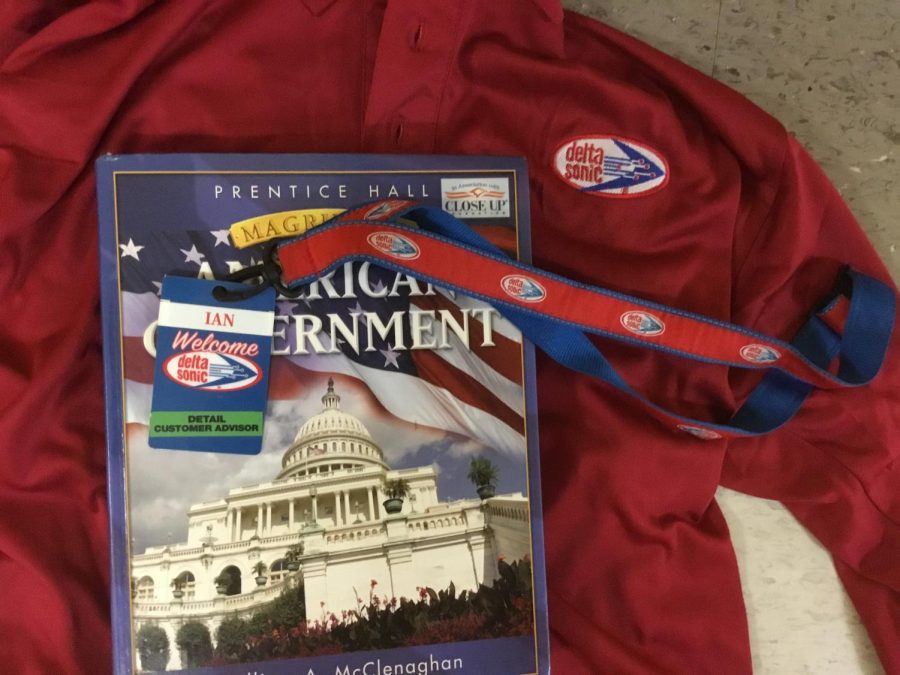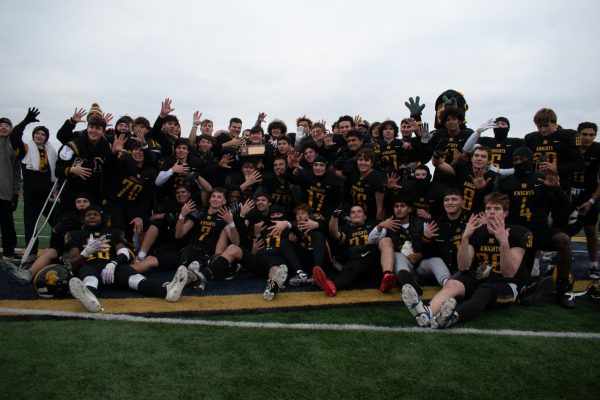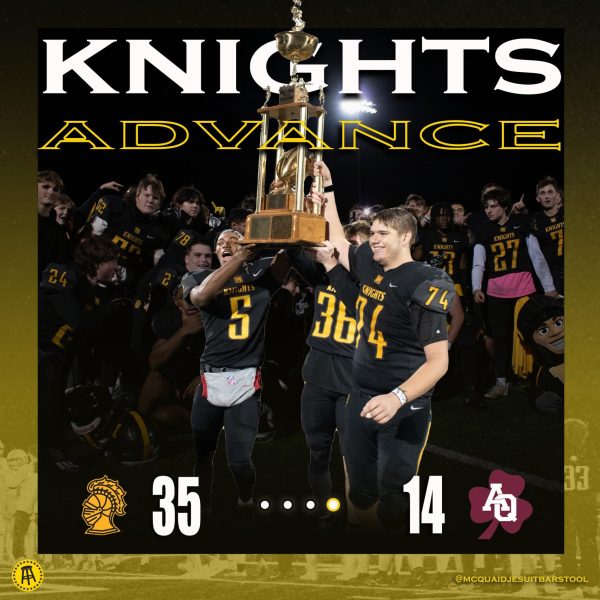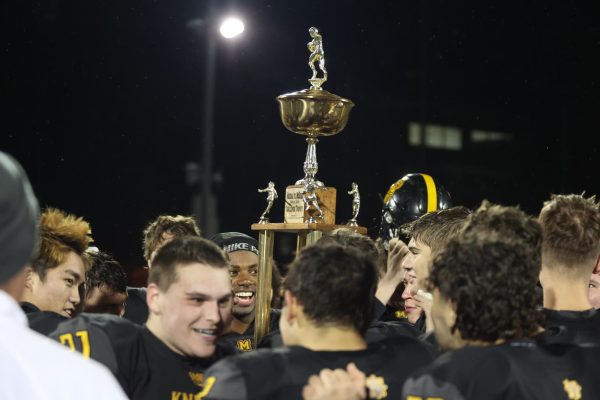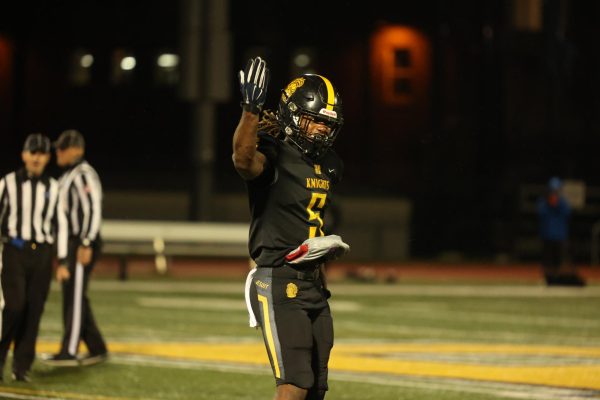Is the Bread Worth It?
Students with part time jobs struggle with McQuaid’s workload.
A Delta Sonic work uniform and name tag placed on a Government textbook. Students often change their uniforms in the bathrooms after school.
Kids 16 and older can work up to 28 hours a week. But with schoolwork piled high at McQuaid, self-care can take a backseat to responsibility.
Part time jobs can provide a significant income source for students for a myriad of reasons. Some students need the money for college or just to help sustain their families. Some students work to have a few extra bucks in their pockets while bolstering their resumés.
But are these jobs a cause for concern? Students under 18 can work up to four hours a weekday. So after six and a half hours of school, these students may work until 10 p.m. or even later. On top of this, there is still homework, and any student would tell you McQuaid has a sufficient amount of that. Eighteen-year-old students can work even more.
McQuaid college counselor Mr. Jeffrey Grifa has some concerns about this, however.
“Initially, I feel nervous about students working that many hours (20) during the school week,” Mr. Grifa said, “because of the amount of homework, extracurricular activities, community service, and many other commitments in which McQuaid students are involved.”
Some students need to work that much, though. Whether, it is for money or resumé, working can build character and independence.
“At a job, you’re deemed responsible enough to manage your own duties,” Mr. Grifa said. “And you’ll have fewer restrictions than you likely do at home or school.”
Students can work longer shifts on weekends, and they have less stress to worry about. Students often relegate bigger projects and essays to the weekends, though. This can cause students not to want to do schoolwork after a long shift.
Mr. Andrew Cavacos, Assistant Principal for academics, believes that working on weeknights along with other extra-curricular activities can be helpful, but only in moderation.
Students who do not work often play sports instead. Sports are often less time-consuming, but are more exhausting. Both are helpful for resumé purposes. Mr. Cavacos did both, and he thinks that they are both helpful.
“Sports and work are both great, and I think experiencing both at different times of the year is ideal,” Mr. Cavacos said. “I did both, and learned great lessons. I think it is up to the individual to prioritize. One thing to remember–you have your whole life to work, but you might not have better opportunities to play organized sports than now.”
Although it seems scary, it is definitely possible. Senior Aidan Holvey is a lifeguard at the Southwest YMCA, and he says that his schedule is flexible enough to work and have a positive school and social life.
“I work as soon as I’m out of school so I’m able to get home at a reasonable time,” Aidan said.
School can be hard, especially when working 20 hours a week, but just like anything, it is about moderation. An extra couple bucks a week is not worth anyone’s sanity. High Schoolers have a luxury unlike any other demographic in America: they have so many opportunities and so much help that with the right guidance, they can make the best of their crunched time.

Mills came to McQuaid in seventh grade. He is a member of the speech and debate club and has started a Mental Health awareness program along with school...

